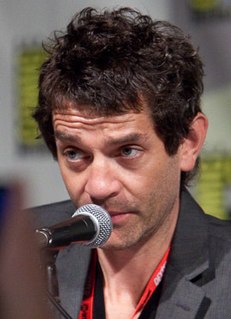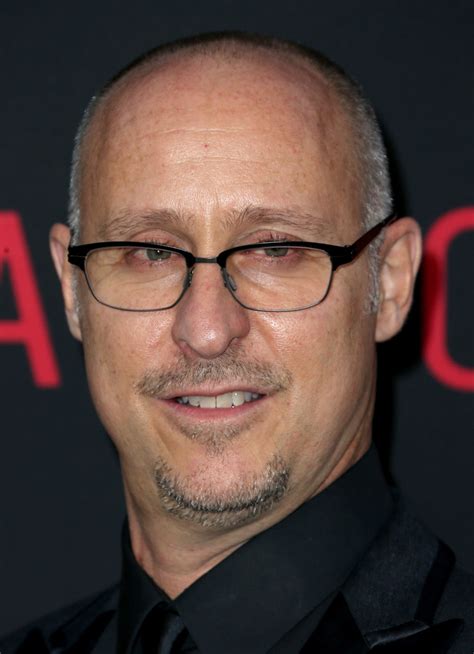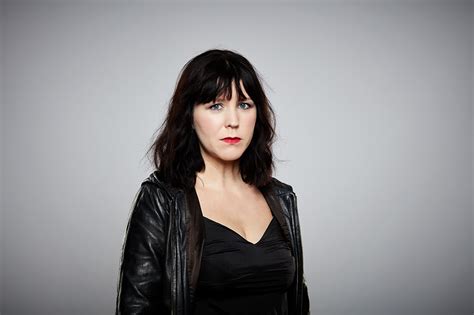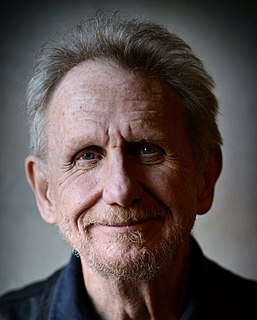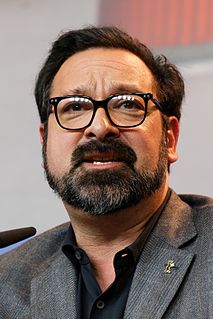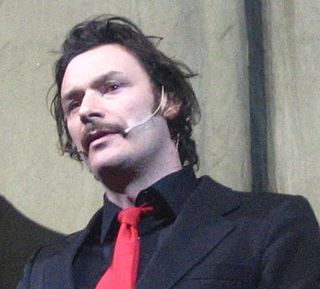A Quote by Rhys Darby
I missed the whole thing [X-files series]. And I know it went for nine seasons, and I think I saw bits and pieces of it in maybe season seven or eight or something, and then was very busy doing whatever else, stand-up comedy and stuff throughout the world. Now I'm watching the show right from the beginning.
Related Quotes
Now it's all about the word of mouth, and watching a series on Netflix. That's the way people actually consume this stuff now, instead of waiting for a DVD release you're not really sure you want to buy. And I think it's fantastic, because then I can watch the shows that I missed, over a weekend. I love doing that.
I really put my heart and soul into everything and I don't want a project that doesn't feel real to me or I don't get invested in. In order to drive a show for eight or 10 years or whatever the target for doing a show is, it really has to be a part of you. Because then I can come up with stories for seasons and seasons on end. I wish I had the ability to just like the idea and get people in and drive it that way through their enthusiasm. For me, it has to be a little more of a personal thing, even if it's not a completely personal story.
It [going from mini-series to series] was never even discussed because it [The Starter Wife] was, you know, an adaptation of a novel. And we - the mini-series encompassed the whole novel. And so it was always going to be a finite sort of event. And then I imagine when people started to really respond to the show and then we got ten Emmy nominations, USA sort of said, "Oh, I think maybe we have something here."
When you're doing something for the first time, you don't know it's going to work. You spend seven or eight years working on something, and then it's copied. I have to be honest: the first thing I can think, all those weekends that I could have at home with my family but didn't. I think it's theft, and it's lazy.
I just like to build. Don't get me wrong: I think stand-up is great, and when someone like Richard Pryor or Steve Martin does stand-up, there's nothing better in the world. But I don't want to watch a lot of stand-ups for two hours. So I can do 45 minutes of stand-up and then say, 'Can we do something else now?'
There is something to be said for one vision and following one vision through. I do think it's something TV will catch up to at some point and realize, 'Wow, we're in the Golden Age of Television right now; we've taken television to another level, but now let's take it to an even higher level where it is one vision throughout a whole season.'
No one was to blame for what happened, but that does not make it any less difficult to accept. It was all a matter of missed connections, bad timing, blundering in the dark. We were always in the right place at the wrong time, the wrong place at the right time, always just missing each other, always just a few inches from figuring the whole thing out. That's what the story boils down to, I think. A series of lost chances. All the pieces were there from the beginning, but no one knew how to put them together.
As for the Folsom Prison show, ... would anybody have the guts to do that show now 50 Cent, maybe I think the whole idea of even playing to a crowd of people like that is so politically unfavorable now - it's like, 'What are you doing, singing for these people Do they deserve it' There's such anger in our culture right now, that kind of grace and forgiveness, we don't see that very often.
When doing a series, I look for something that has an idea you can think about, something that I'm noticing and aware of and thinking about, because when you're doing a series, you think about more than just jokes... you know, when you're doing a comedy, you think about what's going to reflect people's experiences, in a way.
The Internet, you know, 10 or 15 years ago sort of felt like the wild West. You could go out there and do anything and search for things, and, you know, find out about stuff. Now always in the back of my mind, you know, whether it's email or whatever else, it's like, well, is this going to show up somewhere? Is someone going to keep track of this and, you know, know I was searching for - maybe it's an embarrassing disease, maybe it's a weird hobby?

